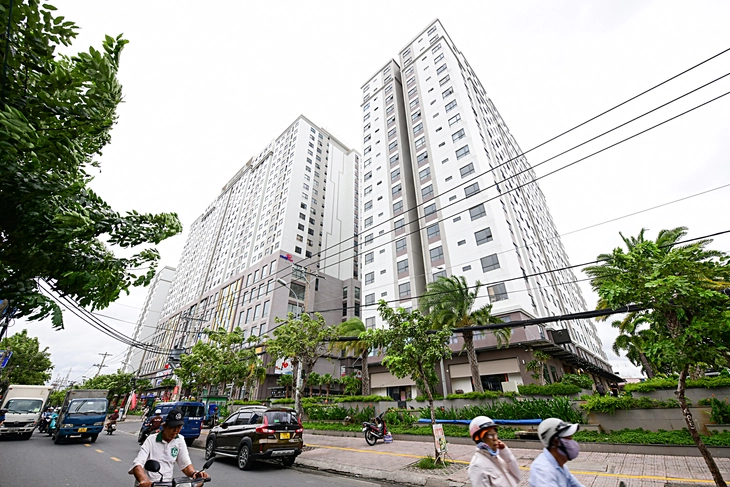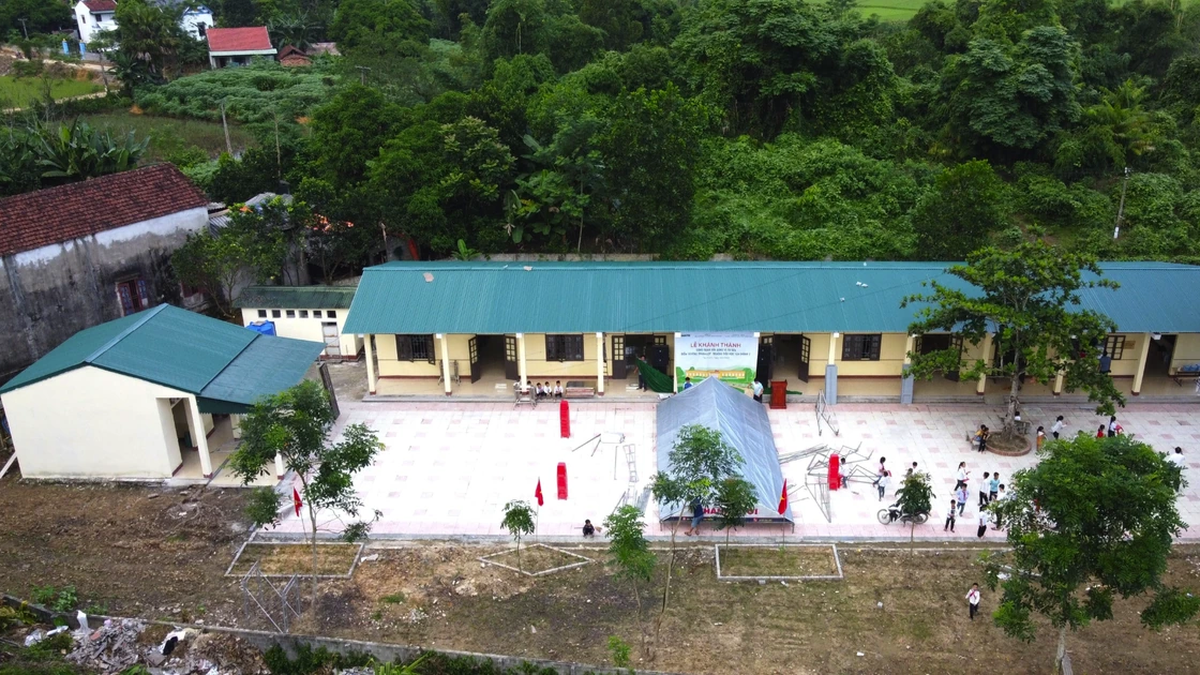
Social housing area in Ho Chi Minh City - Photo: QUANG DINH
Speaking with Tuoi Tre, Mr. LE HUU NGHI - Vice President of Ho Chi Minh City Real Estate Association, General Director of Le Thanh Company (a company specializing in developing social housing) - said that this policy has untied many bottlenecks in administrative procedures, helping to speed up the progress of projects, bringing home ownership opportunities to millions of low- and middle-income people.
Bidding is eliminated, scoring is used to select investors.
* What are the most innovative points of the resolution compared to current regulations on social housing development?

Mr. LE HUU NGHIA
- From the difficulties and challenges in developing social housing, the National Assembly listened and introduced a special, groundbreaking policy.
The first noteworthy new point is the establishment of the National Housing Fund. This Fund has never existed before. There will be two types of National Housing Funds - one of the Government and one of the locality established by the Provincial People's Committee.
This is a non-budgetary state financial fund, with legal status, operating not for profit.
The previous draft mentioned lending for low-cost commercial housing, but this time the resolution clearly states that it is only used to invest in building social housing, creating social housing for rent.
The second new point is that for land allocated by the State to private enterprises to invest in building social housing for the people's armed forces without using state funds, those enterprises are allocated land without going through auction.
The resolution also stipulates very well that when there are two or more interested investors, the investors will be "scored" from top to bottom according to priority criteria to select and appoint contractors. This helps to shorten the time significantly, up to 270 days.
Another point is that the story of planning adjustment to implement social housing projects is always a headache for businesses.
There are almost no locations that have been planned as land for social housing construction, at most they are suitable for residential land planning. Therefore, it is necessary to adjust the planning of that area to land for social housing construction.
Meanwhile, the resolution has allowed to skip the story of planning tasks and rely on the general planning or zoning planning to carry out the shortened process and approve detailed planning. The time to adjust planning is usually about 60 days, so the new regulation helps shorten the time to adjust planning, speeding up the progress.
In addition, the conditions for subjects eligible to buy and rent social housing are also more expanded than before, but in my opinion, this is an additional regulation due to the merger of provinces and cities.
Eliminate pre-control, promote post-control
* In the construction of housing projects in general and social housing in particular, investment and construction procedures are very complicated and often take years. Is the resolution that gives investors the right to decide on many steps a solution to untie the procedures?
- The previous construction investment procedures were very cumbersome, requiring a feasibility study report for the investment project. The feasibility study report included the basic design and construction technical design. This procedure had to be submitted to the Department of Construction or the Ministry of Construction for appraisal. Now, the resolution assigns the investor to self-appraise. This point is very good, going back to the 2003 Construction Law and previous Decree 12.
The government no longer takes on the responsibility of designing the facilities and technical design for construction, but instead lets the investor take care of it himself, hiring a capable design unit and hiring a design review unit to ensure the safety of the project. This greatly reduces the time.
The review process used to take several months, but now the shorter licensing process will reduce the time. In my opinion, it should be applied to commercial housing and other projects in the future because this is a progressive process.
In addition, the fire prevention and fighting dossier does not need to be approved by the police but is integrated into the construction permit issuance procedure. The Department of Construction will appraise and examine the fire prevention and fighting dossier along with the permit issuance dossier and the licensing period is only 30 days. This is a major reform in the process because previously it would have been cumbersome, time-consuming and caused complicated problems for businesses.
Another new point is that the investor determines and approves the selling price and the lease-purchase price after determining the 10% profit. If the audited price is higher than the contracted price, the investor must bear it and cannot collect more; if it is lower, the difference must be refunded to the buyer.
Source: https://tuoitre.vn/nhieu-diem-moi-coi-troi-thu-tuc-cho-nha-o-xa-hoi-20250531075911778.htm
































































































Comment (0)